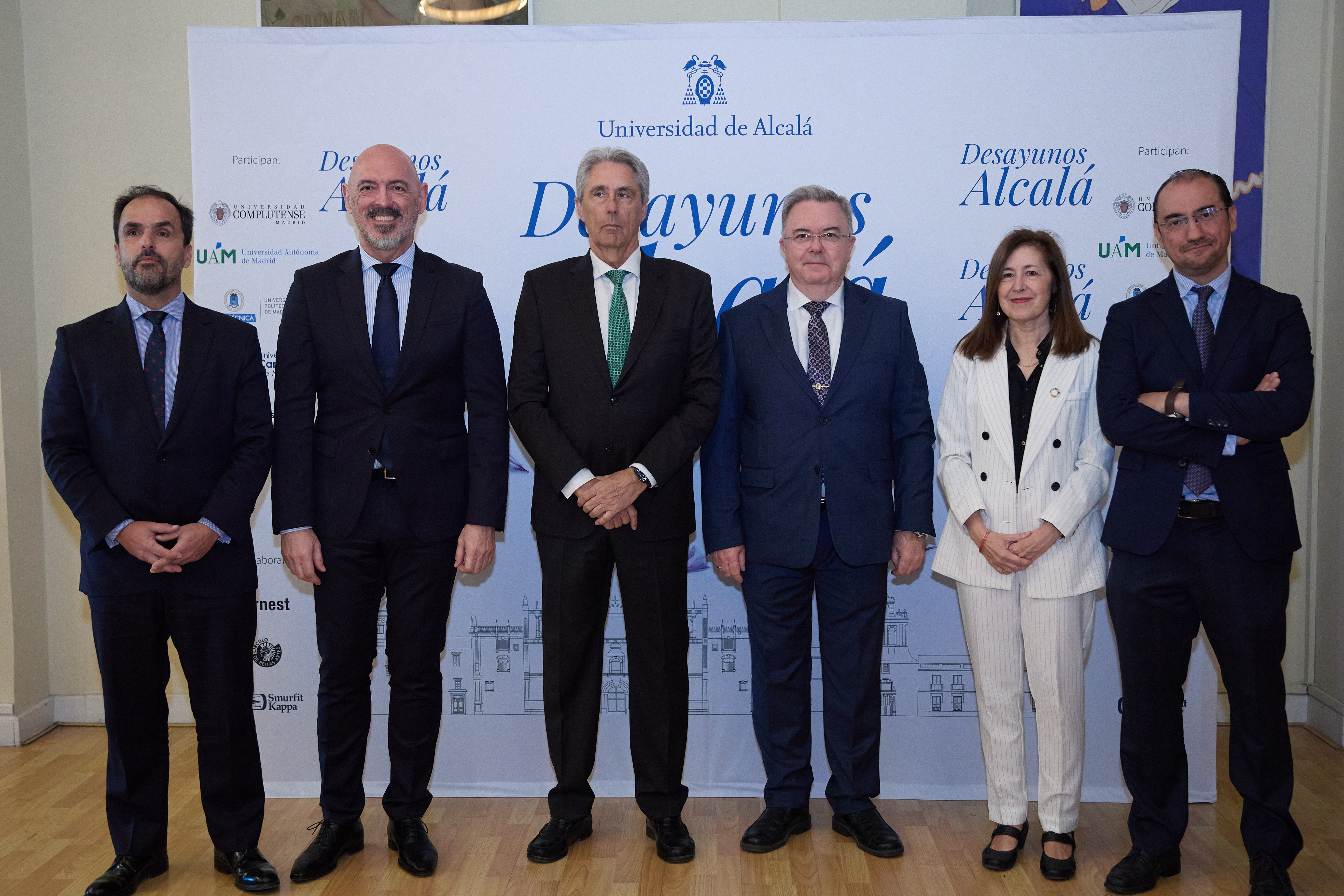Writing/Raúl García Hémonnet
The six rectors of the Madrid public universities that make up CRUMA – University of Alcalá (UAH), Polytechnic University of Madrid (UPM), Complutense University of Madrid (UCM), Autonomous University of Madrid (UAM), Rey Juan Carlos University (URJC ) and Universidad Carlos III de Madrid (UC3M) - met today at the Círculo de Bellas Artes in Madrid to analyze the value and social impact of the Public University.
The meeting took place within the framework of the 'Alcalá Breakfasts', organized by the UAH. During it, the rectors have emphasized the fundamental role that Madrid's public universities have in the economic and social progress of the Community of Madrid and have highlighted that not betting on them would mean paralyzing the progress of the region in the future.

Among those attending this event, José Antonio Sánchez, Deputy Minister of the Presidency and Local Administration of the Community of Madrid (CM), stands out; Nicolás J. Casas, general director of Universities of the CM; and Mª Pilar Ponce, president of the CM School Council.
The rector of the URJC, Javier Ramos, highlighted in his speech that "transparency is a key indicator for public universities since it guarantees that their management is before the citizens." Likewise, Ramos has emphasized the value of employability, without it being the only reason for being of Universities.' The URJC stands out in the rankings in these two areas.
For his part, the rector of the UAH, José Vicente Saz, has highlighted “how a public university can completely change, and for the better, the direction of a city. We have the obligation to convey to society what we do, how we do it and what impact it has.” […] “I think we have to explain it well, because if we don't tell it well, we run the risk of being judged unfairly, in the sense of being seen as entities that generate expenses, when in reality we are the opposite, we generate a great benefit” , has added.
In terms of training, the rector of the UPM, Guillermo Cisneros, has commented that “Madrid public universities, consequently with the application in teaching and the research we carry out, are training our students, future professionals, so that solve problems that do not currently exist with technologies that are not yet developed, both in companies and in society in general.”
Joaquín Goyache, rector of the UCM, has addressed the topic of research. “At public universities we do research because we want to improve education. We are training the scientists of the future. 70% of the research in Spain is done in public universities, but we need to make the management of that research more flexible so that it is agile and efficient,” he noted.
For her part, Amaya Mendikoetxea, rector of the UAM, has stressed that “it is necessary to guarantee that university education maintains its role as a factor of social mobility; "The opposite would be very alarming because it would mean the renunciation of a mechanism that guarantees the path towards equal opportunities between individuals."
Finally, the rector of the UC3M, Ángel Arias, has pointed out that “there must be financing by objectives, which the state University Law allows us and which the regional University Law must also allow. Laws are opportunities and we have an opportunity right now, and a need and an obligation to improve the University System. [...] We need this financing for a series of challenges that are technological transformation, artificial intelligence or those that have to do with health sciences. Likewise, he has pointed out that 'for universities to achieve their objectives we need to attract the best national and international talent. Right now the conditions we have are not up to the talent that exists in universities, and this is producing decapitalization. We need to retain that talent to be able to innovate and to be able to reach society. And also to decisively address social challenges.”
A meeting between the heads of the universities of the Community of Madrid that has served to address the main challenges of higher education in the region.



